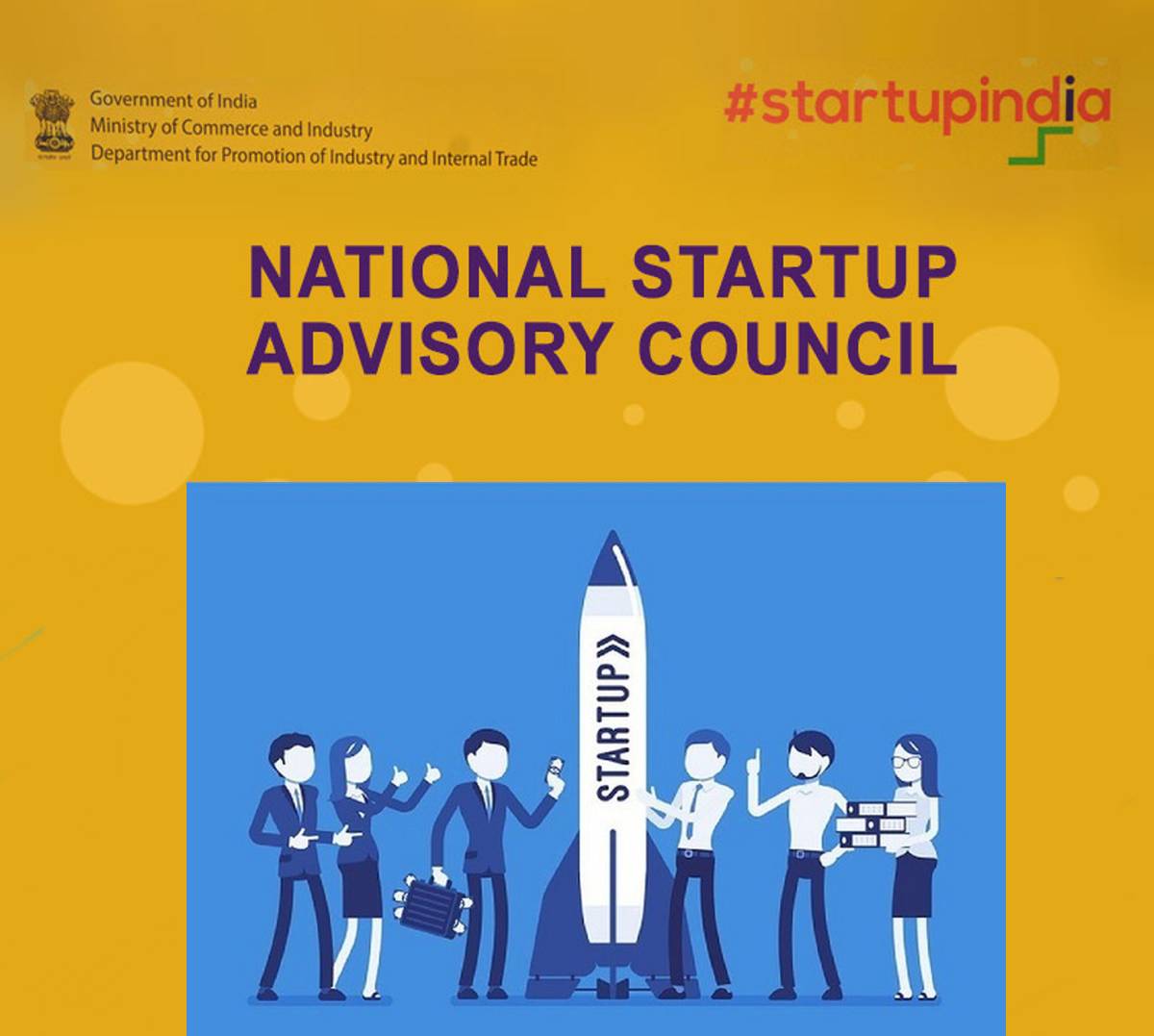New Delhi, NFAPost: Upon completion of two year term of the ‘National Startup Advisory Council’ (NSAC), the Union Government has nominated the non-official members on the National Startup Advisory Council representing various stakeholders.
The government has included members such as founders of successful startups, veterans who have grown and scaled companies in India, persons capable of representing interest of investors into startups, persons capable of representing interests of incubators and accelerators, representatives of associations of stakeholders of startups and representatives of industry associations.
The nominated non-official members are as follows:
1. Sanjay Nayar, Sorin Investments
2. Abhiraj Singh Bhal, Urban Company
3. Kunal Bahl, Snapdeal
4. Sanjeev Bikhchandani, Info Edge
5. Ramesh Byrapaneni, Endiya Partners
6. Prashanth Prakash, Accel
7. Manoj Kohli, Former Country Head, Softbank India
8. Rajan Anandan, PeakXV Partners
9. Prof. Amitabha Bandyopadhyay, IIT Kanpur
10. Kunal Upadhayaya, CIIE.CO, IIM Ahmedabad
11. Karthik Reddy, Indian Venture and Alternate Capital Association
12. Sharad Sharma, iSPIRT – Indian Software Product Industry RoundTable
13. Debjani Ghosh, National Association of Software and Service Companies (NASSCOM)
14. Prof. Yogesh Singh, University of Delhi
15. Shradha Sharma, YourStory
16. Ajai Chowdhry, Founder HCL
17. Nithin Kamath, Zerodha
18. Saurabh Srivastava, Indian Angel Network
19. Rikant Pitti, Easy Trip Planners Pvt. Ltd.
20. Dr. Renu Swarup, Former Secretary, Department of Biotechnology
21. Nishith Desai, Nishith Desai Associates
22. Dr. Tej Chingtham, AIC-SMU Technology Business Incubation Foundation
23. Amit Jain, CarDekho
24. Rana Ashutosh Kumar Singh, State Bank of India
25. Prof. V. Kamakoti, IIT Madras
26. Nivruti Rai, Invest India
27. Archana Jahagirdar, Rukam Capital
28. Rajesh Gopinathan, IIT Bombay and Former CEO, TCS
29. President, FICCI or nominated Representative from relevant startup team of FICCI
30. President, CII or nominated Representative from relevant startup team of CII
31. President, ASSOCHAM or nominated Representative from relevant startup team of ASSOCHAM
The two-year journey of NSAC has become a key example for stakeholder-driven public policy regime and has played a pivotal role in devising programs and measures to cater to the evolving requirements of the Indian startup ecosystem.
Majority of members of the council have owned and mentored various programs which have been pivotal to the expansion of Startup India initiative, including NavIC Grand Challenge, Startup India Investor Connect Portal, MAARG Portal, National Incubator Capacity Building Program, Doordarshan’s Startup Champions, amongst others.
The Eighth meeting of the NSAC is scheduled to be held under the chairmanship of Union Minister of Commerce and Industry Piyush Goyal on 19th December 2023 in New Delhi.
Department for Promotion of Industry and Internal Trade (DPIIT), Ministry of Commerce and Industry had constituted the ‘National Startup Advisory Council’ vide Notification No.5(24)/2019-Startup India dated 21st January 2020 to advise the Government on measures needed to build a strong ecosystem for nurturing innovation and startups in the country to drive sustainable economic growth and generate large scale employment opportunities.
Further, as per the gazette, the term of the non-official members of the National Startup Advisory Council shall be for a period of two years or until further orders, whichever is earlier.
The council meets on a regular basis to suggest measures to:
i. Foster a culture of innovation amongst citizens and students in particular;
ii. Promote innovation in all sectors of economy across the country, including semi-urban and rural areas;
iii. Support creative and innovative ideas through incubation and research and development to transform them into valuable products, processes or solutions to improve productivity and efficiency;
iv. Create an environment of absorption of innovation in industry;
v. Facilitate public organizations to assimilate innovation with a view to improving public service delivery;
vi. Promote creation, protection and commercialization of intellectual property rights;
vii. Make it easier to start, operate, grow and exit businesses by reducing regulatory compliances and costs;
viii. Promote ease of access to capital for startups;
ix. Incentivize domestic capital for investments into startups;
x. Mobilize global capital for investments in Indian startups;
xi. Keep control of startups with original promoters.
xii. Provide access to global markets for Indian startups.





